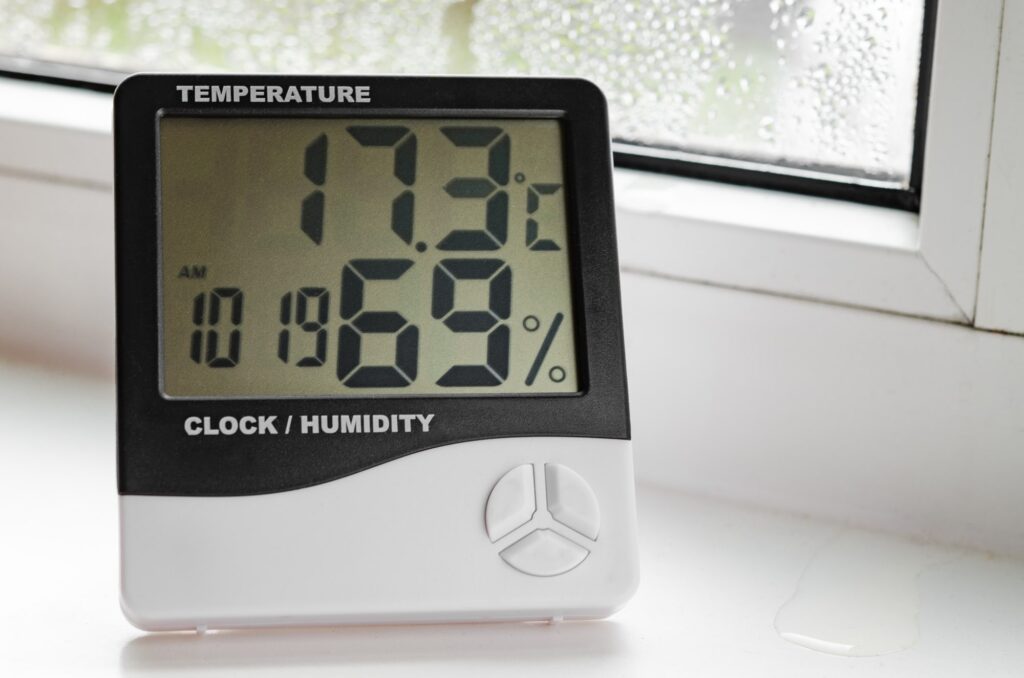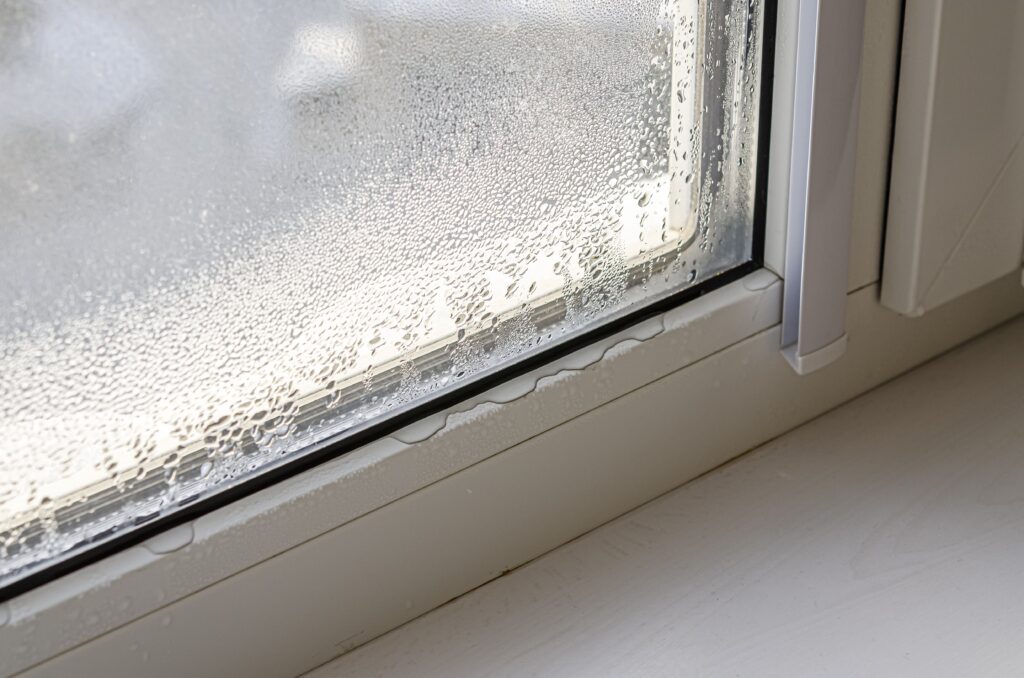Are you struggling to maintain a comfortable indoor environment due to high humidity levels? Do you find yourself constantly adjusting the thermostat or turning on fans to no avail and still feeling muggy? If so, you’re not alone. High indoor humidity can be a major hurdle to achieving home comfort, and it can even lead to health issues if left unaddressed.
One solution to this problem is to use an air conditioner to regulate indoor humidity levels. Air conditioners not only cool the air, but they also remove excess moisture, making the air less humid. However, it’s important to note that not all AC units in HVAC systems are created equal when it comes to dehumidification. Some models are better at removing moisture from the air than others, so it’s crucial to select the right one for your needs.
In this article, we’ll delve into the connection between air conditioners and indoor humidity levels. We’ll explore how air conditioners work to remove moisture from the air and what factors can impact their effectiveness. We’ll also provide tips on how to optimize your air conditioner’s dehumidification capabilities to achieve a more comfortable and healthy indoor environment.
Understanding Humidity and Air Conditioning Units (AC)
Humidity is the amount of moisture in the air, and it plays a significant role in indoor air quality and comfort, which a properly maintained HVAC system can help regulate. Air conditioning systems help regulate humidity levels by removing excess humidity and moisture from the air. In this section, we’ll explore the role of air conditioners in regulating humidity, how high humidity affects indoor air quality, and the science of humidity and temperature interplay.
The Role of Air Conditioners in Regulating Humidity
Air conditioners cool the air by removing heat and moisture from it. As the warm air passes over the evaporator coils, the moisture condenses on the coils and is drained away, leaving cool, dry air to circulate in the room. This process helps regulate humidity levels, making the air more comfortable to breathe.
How High Humidity Affects Indoor Air Quality
High humidity levels can make indoor air feel stuffy and uncomfortable. It can also promote the growth of mold and mildew, which can cause health problems and may clog the air filter in your HVAC system. AC systems can help reduce humidity levels, but it’s important to maintain the right balance. Too little humidity can cause dry skin, eye irritation, and respiratory problems.
The Science of Humidity and Temperature Interplay
The ideal indoor relative humidity should be between 40% and 60%. During the air conditioning season, it will gravitate toward the higher end of that range, 50% to 60%. In the winter, with a humidifier running, you’ll be on the lower end of that scale. Relative humidity refers to the percentage of water vapor currently in the air compared to the maximum amount of water vapor the air can hold at that temperature.
When the air temperature rises, it can hold more moisture. Conversely, when the air temperature drops, it can hold less moisture. This interplay between humidity and temperature is why air conditioning systems are designed to remove both heat and moisture from the air.
In conclusion, air conditioning systems play a crucial role in regulating humidity levels and maintaining indoor air quality. When you remove excess moisture from the air, air conditioners help create a more comfortable and healthy indoor environment.
Managing Humidity in the Home

Maintaining a comfortable level of humidity in your home is crucial for your comfort and health. High humidity levels can lead to mold growth, musty odors, and respiratory problems, while low humidity levels can cause dry skin, a sore throat, and static electricity. In this section, we will delve into practical tips for reducing indoor humidity, selecting the right humidity control appliances, and the importance of ventilation and air circulation.
Practical Tips to Remove Humidity
There are several practical steps you can take to reduce humidity levels in your home. These include:
- Using exhaust fans in the kitchen and bathroom to vent moisture outside.
- Fixing any leaks in pipes, roofs, or windows to prevent moisture buildup.
- Limiting the use of humidifiers, especially in small rooms.
- Ventilating your home means opening windows and doors when the outside air is dry.
- Running your air conditioner to remove excess moisture from the air.
Selecting the Right Humidity Control Appliances
If you live in a humid climate or have a moisture problem in your home, you may need to invest in a dehumidifier. When selecting a dehumidifier, consider the size of your home and the amount of moisture you need to remove. Look for a model with an automatic shutoff feature and a built-in humidistat to control the humidity level. Additionally, consider purchasing a humidifier if you live in a dry climate or have dry skin or respiratory problems.
Importance of Ventilation and Air Circulation to Reduce Humidity
Proper ventilation and air circulation are crucial for maintaining a comfortable and healthy indoor environment. Ventilation systems, such as whole-house fans and heat recovery ventilators, can help remove stale air and bring in fresh air from outside. Additionally, using ceiling fans or portable fans can help circulate air and reduce humidity levels. Finally, opening windows and doors can help ventilate your home and reduce humidity levels, especially when the outside air is dry.
Following these practical tips and selecting the right humidity control appliances, helps maintain a comfortable and healthy indoor environment. Remember to monitor your indoor humidity levels regularly and adjust your appliances as needed to ensure optimal comfort.
Health and Comfort Considerations

Effects of Humidity on Health and Well-Being
The humidity level in your home can have a significant impact on your health and well-being. High humidity levels can lead to discomfort, while low humidity levels can cause skin irritation and respiratory discomfort. Humidity levels that are too high can also promote the growth of mold and mildew, which can be harmful to your health, especially if you suffer from allergies or asthma.
Mold and mildew thrive in environments that are warm and moist, such as those with high humidity levels. When you breathe in the spores from these fungi, they can trigger allergic reactions or asthma attacks. Dust mites are another common allergen that can thrive in humid environments. These microscopic creatures live in bedding, carpeting, and upholstered furniture, and can cause allergic reactions such as sneezing, a runny nose, and itchy eyes.
Achieving the Ideal Indoor Humidity Level
The ideal indoor humidity level for your home is between 40% and 60%. This range ensures optimal comfort and health for you and your family. During the summer months, when outdoor humidity levels are high, your air conditioner can help reduce indoor humidity levels. However, during the winter months, when indoor humidity levels can drop, you may need to use a humidifier to add moisture to the air.
To achieve the ideal indoor humidity level, you can use a hygrometer to measure the humidity level in your home. If the humidity level is too high, you can use your air conditioner or a dehumidifier to reduce it. If the humidity level is too low, you can use a humidifier to add moisture to the air.
Maintaining the ideal indoor humidity level can help promote optimal comfort and health for you and your family. When you keep indoor humidity levels within the recommended range, you can reduce the risk of mold and mildew growth, dust mite infestations, and other health issues associated with high or low humidity levels.

